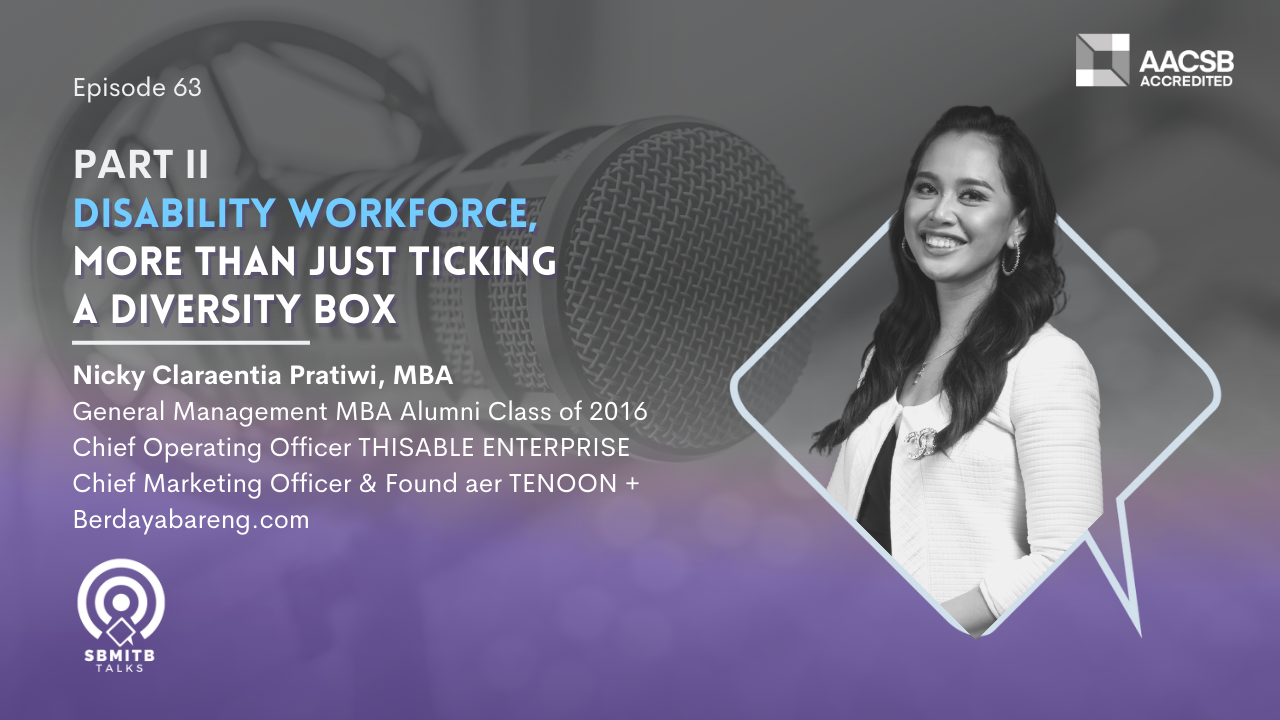People with disabilities have faced many challenges from different aspects. One of the most significant is the challenge of entering the job market. The disability employment gap between the disabled and non-disabled people is still high all around the world, including in Indonesia. There is a gap for people with disabilities who often face barriers in the workforce that relate to the stigma attached to disability. In the 63rd episode, SBM ITB Talks will discuss the world of disability employment, the role of government and corporations, the return on disability, and how social institutions play a major role in that scope.
Why Hiring Disabled Workers Is Not About Charity, It Is Good for Business
Not many employers realize that people with disabilities come with a uniqueness that can offer great value to the company. Disabled workers tend to be more driven because they understand how they represent their community and how hard it is for members of their community in the job market. Many companies are using various initiatives to push inclusivity and empathy in the workspace. These initiatives often result in great financial returns for the business as they maximize the collaboration between the disabled and non-disabled employees. The key to gaining the “return on disability” is to optimize inclusivity and empathy in the workspace.
Job Market for Disabled People in the Future
The Indonesian government actively works with local social enterprises and corporations to minimize the gap for disabled workers. Firms are also starting to realize the concept of “return on disability.” Many new social enterprises are coming and working together. Nicky is positive about the future of disabled workers and their job prospects.




